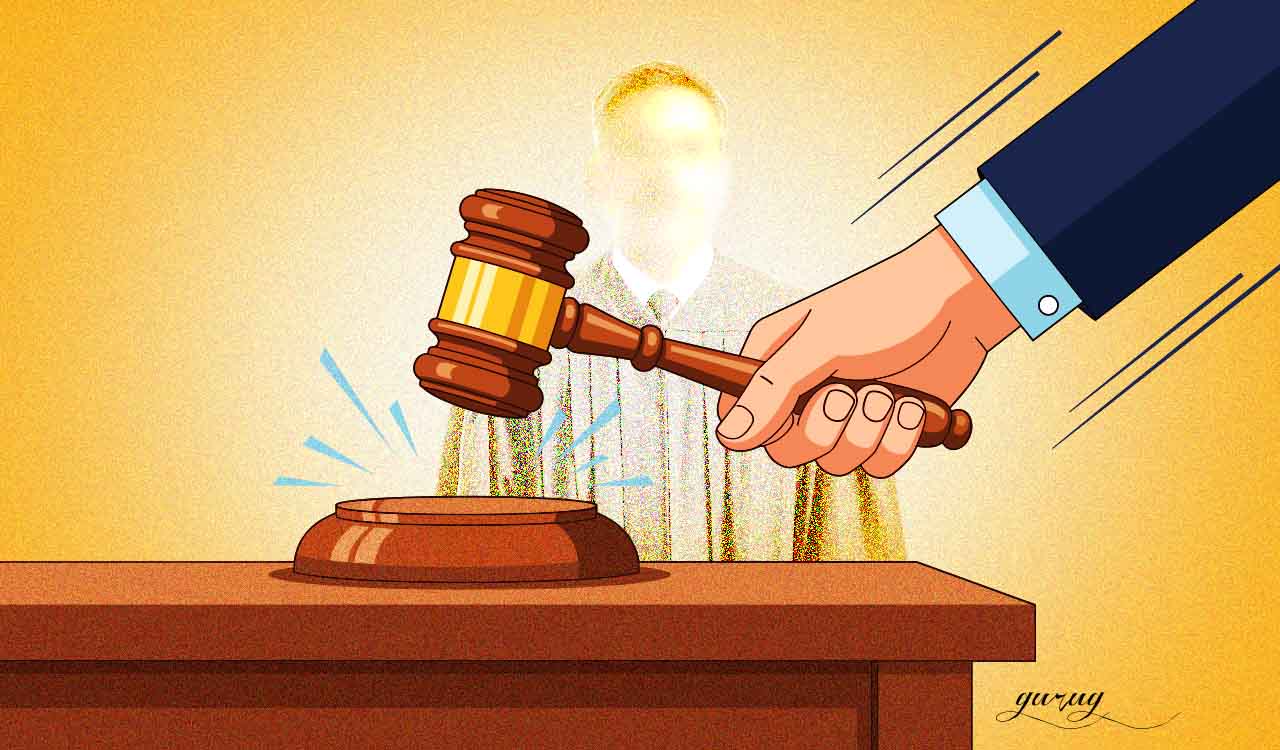Opinion: Your Honour, I submit…
Honorifics institutionalise power and social relations, and stereotype them

By Pramod K Nayar
So we receive instructions, circulars, guidelines and orders from the upper echelons of the administration that our request has been approved by ‘the competent authority’. This throws up the question (to those with the ironic gaze turned on the bureaucracy): is the honorific ‘competent’ an index of the ability of the person in the office?
Also Read
It throws up less pleasant questions as well: so there are, by implication, officers who are not competent, are there?; is the honorific merely a title or can even a completely incompetent individual occupying that office be referred to as a ‘competent authority’? Is it simply an instance of social engineering and hierarchisation or is it symbolic or indexical, as in any sign system?
Traditions of being Polite
English language officialese in India employs several honorifics in conventional use: judges, Vice Chancellors, Chairpersons are addressed as ‘honourable’. Governors and Chancellors are ‘His/Her Excellency’ (there are also the cringe-worthy opening lines of official letters, ‘as desired’ by the Vice Chancellor, Chairman, Director…as though the circular embodies the authority’s various desires, now made public!).
Then there is the ‘Reverend’ and the ‘Respectable’. Such honorifics serve as an integral component of polite speech/writing as well. But, more than the linguistic aspects of honorifics — the subject of any number of studies across various languages — it is the social system encoded into them that arrests attention.
Honorifics are indices of politeness although scholars in language studies such as Judith Irvine argue that honorifics belong to linguistic forms while politeness is ‘a communicative effect brought about by a person’s comportment in a particular social interaction’. Thus, while honorifics enable politeness, smoothening the conversation, letter-writing and address, this politeness is not undertaken on a level plane. Politeness embodied in honorifics implies more than civil speech: it implies order, regimen and hierarchy. Civility in speech may or may not demand honorifics, but if one seeks to be deferential rather than just civil, then honorifics come into play.
This means honorifics are as much about the addressee or referent as they are about the person who uses them. The one who employs the honorific is the giver of deference and the one to whom it is addressed is the focus of deference.
Construction of Social Deference
Honorifics are peculiar linguistic and enunciative structures. First and foremost, they are clues to the social construction of deference. The use of ‘sir’, ‘your honour’, ‘his excellence’ and ‘competent authority’ is the enunciative organisation of social rank. The honorific spells out the supplicant and authority’s respective roles and identities. Naturally, the supplicant is forced to offer the honorific in her/his address, thus reinforcing the roles played out. In constructing relations that demand a certain unidirectional flow of deference, honorifics emphasise difference too: those to whom honorifics are applied are in higher status/class/role.
Secondly, honorifics enable the strengthening of hierarchies. They ensure that we dissociate the honorific from any perception of intrinsic quality: are all Vice Chancellors and Chairpersons ‘honourable’? are all officers ‘competent’? are all priests/god-men and women worthy of ‘reverence’? With such a dissociation, the honorifics are a greasing of social wheels that keep the power relations in place. Further, since we all need to agree on what honorifics to employ, they play a role in community-building and shared meaning-making. The community concedes that Chairpersons, members of the judiciary, legislators are in higher status-roles and hence demand honorifics.
Oftentimes, though, the honorific can be used satirically, as in the employment of ‘sir’ within a particularly inflected sentence that signals not respect and deference, but its exact opposite. Then there is the ritual use of honorifics that give rise to unintended mirth. Heads of institutions or people in power addressed as ‘beloved’ would be a case in point: since when did the Chairperson, party leader or Vice Chancellor become a loved one?
Honorifics and Power
Historians and linguistic anthropologists have noted that kings and rulers in various cultures issued edicts as to how they will be addressed. Judith Irvine writes: “chiefs and kings sometimes dictated sets of lexical substitutions that were to be employed by their followers as a display of respect and loyalty.”
That is, the honorific was not simply a sign of respect: it was a sign of affiliation and loyalty. It is employed to demonstrate that one is affiliated with and subordinate to the person who is the focus of the honorific. Honorifics institutionalise power and social relations, and stereotype them.
Asif Agha, the anthropologist, in an early essay argued: “In all languages that possess elaborate honorific registers, some honorific expressions are said to be used only BY certain people or FOR certain people. Such stereotypes personify speech itself. They formulate signs of social identity by linking features of utterance-form with social categories of persons; at the same time, such stereotypes formulate social standards by which individual acts of language use are judged.”
From Agha, it also follows that people of certain social rank and class must use honorifics to address their social superiors. In the words of Judith Irvine: “To deploy respect vocabulary is to presuppose… perhaps … coercively … that the situation demands ‘respect for tradition’ from everyone. What the honorifics index, then, is not so much the speaker’s deferential attitude toward a particular addressee or referent, but the speaker’s invoking of respect for tradition, the tradition of which honorifics are a part.”
Honorifics signal what constitutes respect in any society and linguistic community, but they also enforce ranks and protocols that the community’s members must adhere to.
Our inheritance, in English at least, of honorifics from the British era, has enabled the creation and reinforcement of institutional hierarchies. But these honorifics, central to babudom, were also inherited from other languages, and from our ‘own’ feudal, monarchic social orders, so let us not blame the ‘Reverend’ Bishop or the ‘Honourable’ Magistrate for all of this. Honorifics reiterate power relations.
But, unintentionally, they also illuminate, very often, the sheer scale of institutional comedy when in an administrative setup all officers are declared ‘competent’ despite proof to the contrary, and there exists the very real danger/potential of morphing your Chairperson/Vice Chancellor/Director into your ‘beloved’ through an honorific.
The honorific can fuel the ironic imagination.
(The author is Professor, Department of English, University of Hyderabad)
Related News
-
BRS sweeps Patancheru municipal elections, wins all chairperson posts
9 mins ago -
MLRIT innovation team places third nationally at Anveshana 2026
19 mins ago -
Watch: Happy Birthday to the man who didn’t just celebrate Telangana—He created it
26 mins ago -
Sikh village-Paradise Circle road rebuilt, relief for motorists
34 mins ago -
Dwarka crash: Mother seeks justice as minor filmed reels before fatal collision
34 mins ago -
Vahan portal to be rolled out in Hyderabad soon
44 mins ago -
SC dismisses plea, upholds conviction in Telugu actress Pratyusha death case
20 mins ago -
Hyderabad: Youngsters booked for posting reel offering marijuana as ‘Prasadam’
54 mins ago




